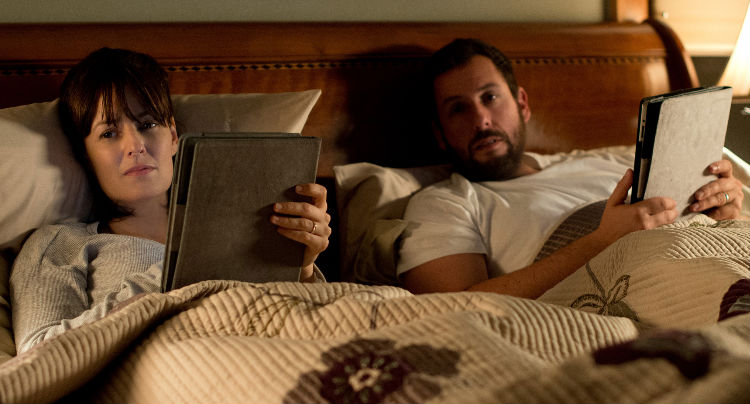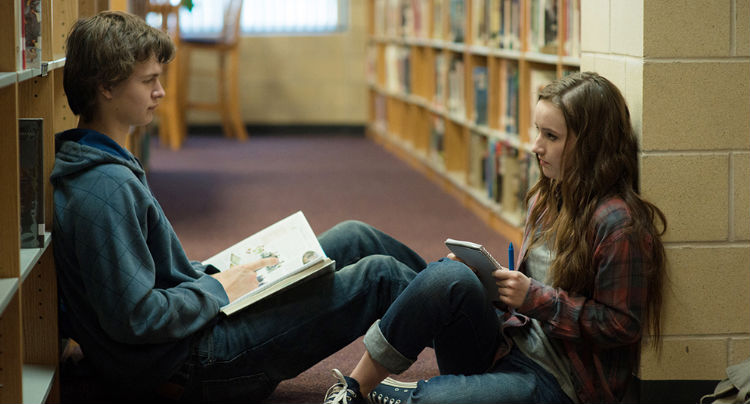
An ambitious film about how the internet has mutated human communication. Also, a film that came 15 years too late.

An ambitious film about how the internet has mutated human communication. Also, a film that came 15 years too late.
For a director like Jason Reitman, who in the past has been so innately in touch with how human connection works (the nuanced Up In the Air and insightful Thank You For Smoking demonstrate his expertise), to make a movie so out of touch, out of date, and overbearing is, frankly, baffling. I don’t understand how his latest effort, Men, Women & Children, came from the same guy that made Juno, a film whose characters felt so grounded and earnest.
Men, Women & Children is an ensemble film about how the internet has reduced all of us to half-awake iPeople and mutated the way we communicate. With an array of cardboard characters and relationships it sends a message: The internet is totally messing with our brains, man! Sadly, everything about the film is sorely behind the times, telling us little about ourselves we don’t already know. If this were the year 2000, Reitman would have had a thought-provoking, prophetic cautionary tale on his hands; In the year 2014, he comes off as naive as his clueless characters do.
The film opens pleasantly enough, with voiceover narration by Emma Thompson accompanying an image of the Voyager I spacecraft, the furthest man-made object from earth, hurtling toward the edge of the solar system. Then the film zooms in on the “pale blue dot” we call home, introducing us to its multiple characters. You know how in almost all zombie movies, it’s an unspoken rule that the characters live in a world where zombie movies don’t exist? Men, Women & Children is similar in that its characters seem to be just discovering the wonders of the internet, despite it being 20-effing-14.
Adam Sandler plays Don, whose marriage to Helen (Roemarie DeWitt) has grown stale, as many do. With the house empty, he grabs his tissues and hunkers down in front of his computer to masturbate. Ahhh…masturbation; the ultimate bandaid for marital-malaise. Or is it? Frustrated by his malware-infected PC, he walks over to his son Chris’ (Travis Tope) room to use his. There, he discovers an online escort agency and sets up a meeting with one of the girls. Helen is no victim in the situation, though–she’s been experimenting with “affair” website Ashley Madison behind his back.

When you strip away the fact that Don and Helen found their affairs online, all that’s left is a story we’ve seen hundreds and hundreds of times before: An unhappy couple cheats on each other. Considering the film’s premise, shouldn’t we be presented some new kind of perspective on this scenario? The infidelity is the focus here, and unique repercussions of the digital element are nowhere to be found. They may as well have used carrier pigeons instead of a mouse and keyboard.
By a mile, the best relationship in the movie is between a teenage ex-football star named Tim (Ansel Elgort) and a reclusive, quiet girl, Brandy (Kaitlyn Dever). Tim left football to hang out with friends he made in his favorite online role-playing game, which consequently lost him all his high school friends. His mom left he and his dad Kent (Dean Norris) to move to California with another man, and ever since Kent’s been trying hard to understand why his son would give up football (the only interest they used to share). Feeling isolated and alone, he’s drawn to Brandy, who’s in a similar rut. Her mom Patricia (Jennifer Garner) goes to borderline psycho lengths to monitor her every move, tracking everything Brandy does online and deleting “dangerous” messages before she can read them. In each other, Tim and Brandy find a respite from a world that doesn’t understand them. A scene in which the outcasts lay together in front of a waterfall at night is the film’s most touching.
The mother-daughter relationship between Brandy and Patricia, like the Don-Helen plot, illuminates nothing new about internet evils. Just because the tightly-wound Patricia uses technology to be overprotective doesn’t change the fact that, for storytelling purposes, she’s simply an overprotective mother and nothing more. Everyone in this film is so one-dimensional, their trajectories so predictable and clichéd. Judy Greer, for example, plays a mom who takes risqué photos of her snooty daughter Hannah (Olivia Crocicchia) and posts them online, a sleazy parenting move that may ruin Hannah’s chances of landing a spot on an American Idol-esque talent competition. The fact that Greer’s character is genuinely surprised that the TV show executives find her daughter’s site questionable is absurd. Again, maybe 15 years ago this story line would make sense, but we’ve come way too far since then.
One thing the film has going for it are some key, good performances, most notably from Sandler. As Don you can see him bearing the weight of his unfulfilled life on his shoulders, often zoning out and staring off at nothing as his wife and son move around him. There’s an honesty to the performance that makes you wish he’d venture into the dramatic arena more often instead of churning out family movie schlock. Elgort and Dever are excellent as well, imbuing their thinly-written parts with real heart.
At least Reitman hasn’t lost his ambition–Men, Women & Children is a huge, intricately woven film that at least attempts to say something profound about the current digital-obsessed landscape. His message may be out of date, but maybe someday, years from now, we’ll look back on this movie fondly, as a time capsule of how foolish we once were to let online nonsense muck everything up so bad.